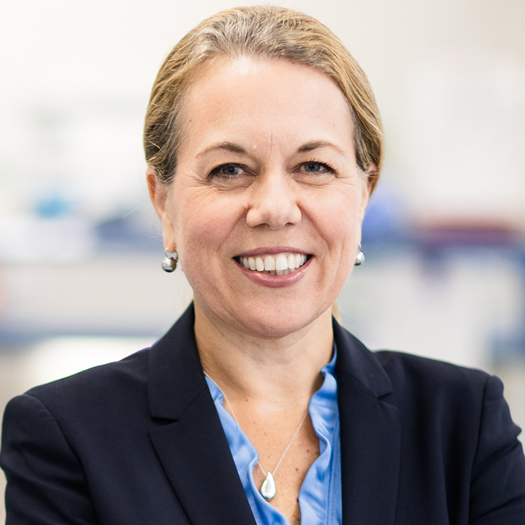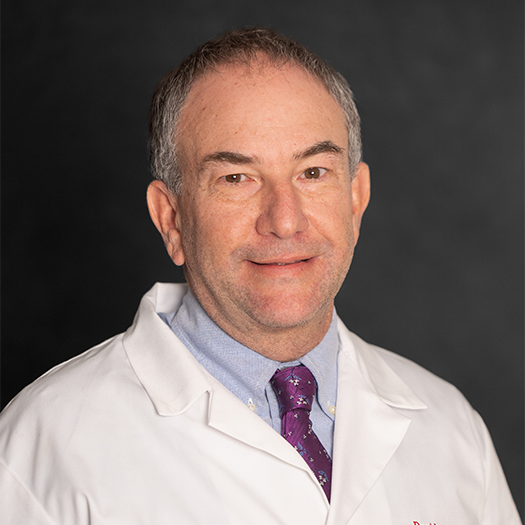Catherine M. Bollard, MBCHB, MD, and Team Perform First Treatment Using T-Cell Therapy for Child With Virus Infection
Washington, DC - Catherine M. Bollard, MBChB, MD, director of Children’s National Health System’s Program for Cell Enhancement and Technologies for Immunotherapy (CETI), and her team have performed the hospital’s first treatment using T-cell therapy for a 6-month-old patient with congenital immune deficiency and a life-threatening virus infection.
Not only does this therapy offer a potentially curative treatment for patients who have failed conventional therapies for infections and cancer, the procedure sets the stage for avoiding potentially toxic drugs which can ultimately reduce inpatient stays and medical costs.
“It’s extremely important, offering a novel therapeutic that’s not available at the majority of hospitals worldwide,” said Dr. Bollard, a member of the Division of the Blood and Marrow Transplantation and senior scientist at Children’s National’s Center for Cancer and Immunology Research at Children’s Research Institute. She is also the Principal Investigator and the Sheikh Zayed Institute for Pediatric Surgical Innovation.
Children’s National is one of the few hospitals in the world to offer cellular therapy to treat life-threatening infections in patients with immune deficiencies as well as preventing or treating relapse in children with cancer. Cellular therapy uses the body’s own immune system to fight cancer and/or infections.
Patients from other hospitals and children’s facilities have been referred to Children’s National “because of the uniqueness of the cell therapies we can now offer here,” Dr. Bollard said. “This kind of procedure reduces the amount of time for care and is not only cost effective for a hospital but also more tolerable for the patient,” said Dr. Bollard. “None of this could have been achieved without every one of those members within the CETI Program pulling together as a team to make it happen.”
In the first of its kind cellular therapy achievement at Children’s National, Dr. Bollard and her team have shown that in the laboratory they can train “naïve” or “inexperienced” immune system cells (T-cells) to kill cancer and/or viruses. In the first patient treated here, T-cells were grown from the patient’s mother and then injected into the young patient, who had severe combined immunodeficiency and a potentially life threatening virus infection. The T-cells the patient received (cytotoxic T lymphocytes) are a type of white blood cell that can kill virus-infected cells or cancer cells infected or cells that are damaged in other ways.
The baby’s immunodeficiency ailments included SCID, or severe combined immunodeficiency, a primary immune deficiency, which can result in the onset of one or more serious infections within the first months of life. Early in life, the child was infected with cytomegalovirus (CMV), a latent virus related to herpes that has significant morbidity and high mortality rates in immune compromised people. Initially, the patient had received a bone marrow transplant, but the CMV could not be cleared with the drug therapy he received after transplant, Dr. Bollard said.
Conventional treatment using antiviral agents is expensive and toxic and can be ineffective. Transfer of virus-specific T cytotoxic cells is seen as an alternative means of preventing and treating these infections. The hospital takes donor cells and manufactures them in the lab to fight specific viruses and/or cancer. The cells are given to the patients in the outpatient clinic, in a procedure that takes less than five minutes. The cytotoxic T-cells usually “take” within two to six weeks after which time the patient may no longer need other medications to treat or prevent infection.
“We give these cells to the patient and then we hope that in a couple of weeks the CMV viral load falls to very low levels or even zero,” Dr. Bollard said. “This patient is 6 months old. By giving these T-cells, he can get off the drug therapy and spare his kidneys from the toxicity of the antiviral drugs.”
Children’s National’s program is unique in that it involves protocols using naïve T-cells, including those from cord blood, Dr. Bollard said. “No one else is doing a protocol quite like this one. It’s a tour de force,” she said. “We’re the only place that makes the T-cells from donors who have never seen the virus before.”
A distinguished hematologist and immunotherapist, Dr. Bollard’s research interests focus on different areas including developing cell and gene therapies for (1) patients with cancer, (2) underlying immune deficiencies and (3) inflammatory disorders/autoimmune conditions. Dr. Bollard is also head of the non-Hodgkin's lymphoma committee of the Children’s Oncology group.
Dr. Bollard has personally treated over 100 patients with different types of T-cell therapies in her career. Last year, Dr. Bollard joined Children’s National after serving at the Baylor College of Medicine where she was a Professor in the Departments of Pediatrics, Medicine and Immunology at the Center for Cell and Gene Therapy, Texas Children’s Hospital and Methodist Hospital.
“In a short gestational age of only 9 months, (Bollard) and the team have managed to not only open the impressive number of cell therapy protocols, but also actually translate them,” said David A. Jacobsohn, MD, ScM, Chief, Division of Blood and Marrow Transplantation, Children’s National Center for Cancer and Blood Disorders.
Children’s National has a specialized research team dedicated exclusively to cellular therapy, working in an advanced, sophisticated cGMP facility. The facility adheres to Food and Drug Administration-enforced regulations, ensuring the safety of medications. As Children’s National moves forward with its cellular therapy program, there’s a “huge waiting list, we have one patient referral a week at the moment,” Dr. Bollard said. “The protocol is up and running.”
“I think it’s absolutely terrific, for us not only to be able to do it here [at Children’s National], but in an incredibly short time, in under a year,” Dr. Bollard said. “I think it’s really a testament to the entire group, and the infrastructure at Children’s to make it possible.
Dr. Bollard also was thankful for the Blood Marrow Transplant Division’s Good Manufacturing Practice (GMP) program as well as the Clinical Translational Science Institute at Children’s for their participation.
“We hope the CETI program continues to grow and I am so confident it will become a destination for patients from all over the country seeking cellular therapy approaches,” said Dr. Jacobsohn.
Contact: Emily Hartman or Joe Cantlupe at 202-476-4500.





